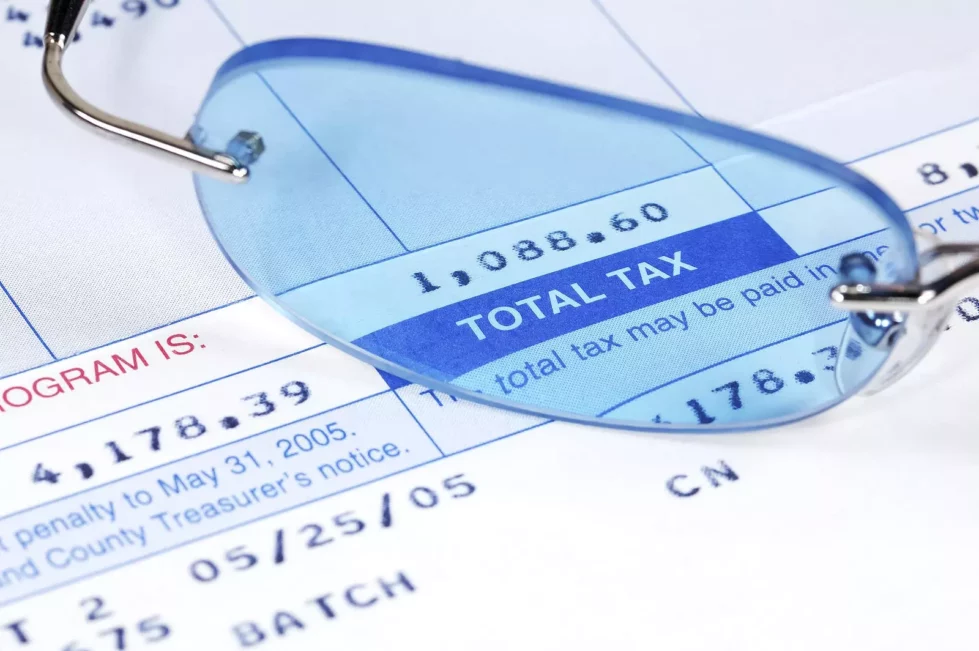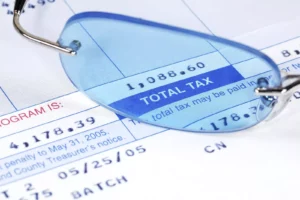Recently, social media sites have had multiple comments about an increase in City of Milford property taxes. Some residents claim their city taxes are now three times higher than their county taxes. In an effort to be transparent, Mayor Archie Campbell asked City Finance Director, Lou Vitola, to explain what the increase included.
“What I instantly thought Mayor when you reported that to me was that the truth is the way costs have been escalating in this post COVID environment and runaway inflation environment and the fact that not a smidge of the tax increase is attributable to our own cost pressures,” Vitola said. “So, 100% of the tax increase is related to one of two things. One is larger than the other, the larger being the debt service on the new police station. This is a large project, a $20 million project that was approved by voters back in 2020 and should be done by the end of 2023. We’re going to come in under budget, we’re going to be on time, but the ramifications of taking on such a large project like that is that it has to be paid for with our current income stream. We borrowed for the police station, and we’ll meet that debt service through property tax assessments of a few pennies in 2023 and another few pennies in 2024 and in fiscal 25.”
Vitola continued that the smaller portion of the increase was related to the city’s cautious use of realty transfer tax (RTT).
“Realty transfer taxes are considered one of the more stable and recurring forms of revenue that we can collect as a city, but we’ve been guilty of using them to meet operating expenditures over the years. But the state could change the law. We could lose the funding tomorrow. We could have a bad year in real estate or a bad several years in real estate where that funding is no longer reliable, and then we’d have a budget gap that we’d be forced to fund with something like a tax increase but by gradually doing a penny a year for five years and we’re in the third of those five years of doing just a penny of the assessment,” Vitola said. “By doing that and gradually pushing realty transfer taxes off into a fund that can float as our capital needs, we’ve put ourselves in a stronger position so that the increases are known and can be measured and budgeted by residents, businesses and families. And we can put the capital side to be able to use for streets, sidewalks, curbs, projects, vehicles, equipment and so forth. So that was probably a little longer than you wanted, but none of any of the tax increases in the last few years were related to any of the city’s own internal cost pressures at all. It was these two initiatives.”
When the current budget was approved in June, it included a one penny per $100 assessed value in relation to the shifting of RTT funds from operating cost use to reserves that could be used as a backup funding source. An additional small increase was included as part of the debt service for the new police station, something approved by the voters several years ago. City of Milford property taxes increased from $0.49275 per $100 of assessed value to $0.546 per $100 of assessed value, an increase of 9.7 percent.
“For the average Milford home with an assessed value of $147,000, the increase will be $5.81 per month or $70 per year,” Mark Whitfield said at the time.” No portion of the property tax increase is unscheduled or emerging suddenly from the inflationary operating cost environment. Rather, the proposed movement of the property tax is rooted in the city’s push for a structurally balanced budget as outlined in the strategic plan along with the voter-approved referendum to construct the new police facility.”
Although the referendum for the new police station permitted the city to borrow up to $20 million to complete the project, Mayor Archie Campbell and other council members have been adamant that they want to keep the costs below that. Currently, the station appears to be on target to cost around $17.5 million. During promotions for the referendum, the city stated that taxes on a home with a $150,000 assessed value would increase between $7 and $11 per month, or between $86 and $138 per year.
Another factor facing the city is that appraisals on property are done more often in city limits than they are at the county level. In Kent County, appraisals have not been done since the 1980s while Sussex County has not reassessed property since 1974. This means that a house in Milford may be appraised significantly higher at the city level than the county level. For example, a search of a home located on South Washington Street in Milford shows that the home is valued at $74,100 with a tax bill of $404.59 to the city. That same house at the county level has an assessed value of $5,350 and a tax bill of $297.47. The assessed value is significantly lower, indicating why the county tax bill may be lower than the city tax bill. All three counties are currently undergoing tax reassessment which should bring assessed values more in line with actual value.
“During our budget process, we were very transparent and very vocal for explanations on every penny that had been spent and the other increases for the penny and for the police station,” Councilman Jason James said. “They were known things that have been discussed and vetted and information has been made available to the public in several different forms on several occasions. But we do owe to the public to make sure we’re transparent and if it left their minds, it’s our duty to remind them right now. It is what they have voted for to try to accommodate the understanding and the needs of the constituents.”
Councilman Todd Culotta stated that Councilman James had a good point.
“People remember it when they see it on the bill in front of them. Is there some way we can remind them of that and some of what he just said, a very simple press release,” Councilman Culotta said. “Something that says you may have noticed a tax increase and this is why for those that didn’t vote or who have simply forgotten.”
Mayor Campbell pointed out that school tax had actually gone down over the past years which may be why people are seeing lower county tax bills.
“And I always say when the subject of school tax come up. I have to remind our constituents because it gets confusing,” Councilman James said. “The City of Milford as an entity does not have jurisdiction over the school tax. That is that is not something that we tax or set a rate or collect at all. The city does not participate in that in any way.”
Anyone who is having difficulty paying their City of Milford property tax should reach out to the Customer Service Department. The city also offers exemptions to senior citizens and information on those exemptions can be found at https://cityofmilford.com/208/tax-payments-and-senior-exem.
Share this Post




